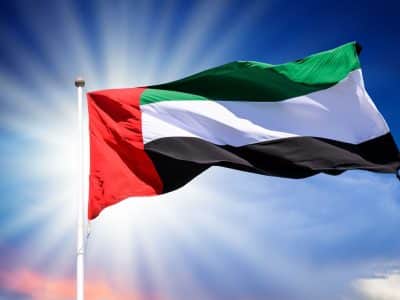Dubai International Financial Centre has announced plans to triple the amount of leasable real estate at the free zone over the next decade, but says it is not interested in opening up sites to foreign investors.
Announcing the DIFC’s ten-year growth strategy on Wednesday, DIFC governor Essa Kazim said the centre was targeting an increase in leasable space from 2.5 million sq ft in 2014 to 5.5 million sq ft by 2024.
However, he revealed that the DIFC intends to build almost all of the new development itself, and is not particularly interested in opening up the free zone to overseas real estate investors.
“Currently we do have excess space,” said Kazim. “But almost all of these plots will be developed by the DIFC, not third parties, and there are no plans to open up sites [to overseas property developers].
“The reason for this is that we want to focus on our own goals – others may have their own strategy,” he said.
He declined to comment on news revealed in March that a joint venture between Dubai’s sovereign wealth fund Investment Corporation of Dubai (ICD) and Canadian asset manager Brookfield plans to build a $1 billion (AED3.67 billion) mixed-use scheme in the heart of the DIFC – the first new project there since the recession
“This is Brookfield [and ICD]’s scheme; they bought the site, you must talk to them,” Kazim said. During the recession, the ICD helped out the DIFC financially by buying some of its assets ahead of a refinancing in 2012. Kazim’s comments suggest such asset sales will not be commonplace in future.
He also said the DIFC was on firm financial footing at the moment, with around $150 million to spend, according to its earnings before interest, taxes, depreciation and amortization (EBITDA) in 2014. “We will have sufficient cash to optimise our real estate development as and when we plan it.”
However, Kazim admitted that the UAE’s complicated ‘strata title’ system – the most common way property is owned in the country, under which different investors own one or more floors – makes it hard to rent large spaces with a single owner, potentially dissuading new occupiers.
Nick Maclean, managing director of CBRE Middle East, commented: “We see a lot of activity from internationals that want space within the estate and so the buildings at the Doha Street end will benefit from this demand in the period up to additional space being delivered by the DIFC themselves and Brookfield.
“In the long term, however, to achieve a doubling of the jobs created within the DIFC the authority must examine the licensing structure and perhaps consider the concept of on and off shore licensing to remain competitive with other locations.”







